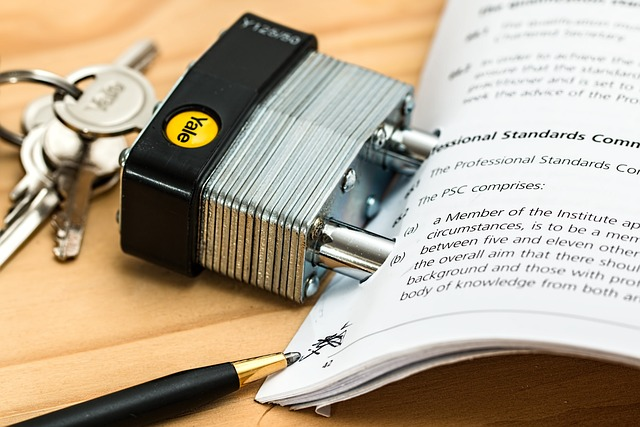What are Business Acquisition Loans?
A business acquisition loan is a small business financing arrangement used to acquire a business or valuable assets from a company. Small business owners use acquisition loans to expand their business, open or expand a franchise, consolidate or merge with competitors, buy businesses in related industries, or even buy out other partners.
There are several financing strategies to acquire a business, but the two most common methods are an SBA loan and a business term loan. In most cases, you’ll also need a down payment of up to 25% of your small business loan amount.
Small Business Administration (SBA) Loans
The US Small Business Administration oversees the coveted SBA loan program. Small business owners still apply to a lender, but the SBA partially guarantees up to 85% of the loans. The partial guarantee provides security for the lender, which can then offer higher borrowing amounts at low interest rates and extended repayment terms.
Small business owners use the SBA 7(a) loan as the primary loan to acquire a business. SBA 7(a) loans have a maximum borrowing amount of $5 million, and terms go up to 10 years for most purposes.
The SBA caps interest rates on 7(a) loans, which can range from the Prime rate to Prime + 4.75% for variable-rate loans or Prime + 8% for fixed-rate loans. Business owners can use the loan funds for most business purposes, including working capital, refinancing business debt, or business acquisition.
Most SBA lenders require at least two years in business, so these loans are primarily meant for an established business buying another existing business. However, some lenders might consider an SBA 7(a) loan for a startup for a new business if the business model is strong.
You will also need a good to excellent credit score to qualify. The biggest drawbacks to SBA loans are the stringent qualification requirements and long application and funding times.
Business Term Loans
When most people think of business loans, they think of term loans. These are traditional loan arrangements where you receive a large sum upfront and then repay it via fixed payments plus interest.
Commercial banks offer business term loans, but they’re often more difficult to qualify for than SBA loans. Many online lenders offer term loans with looser qualifications and faster funding times.
Business terms loans here at United Capital Source offer the following features:
- Loan amount: $10k – $5 million.
- Factor rates: Starting at 5%.
- Terms: 3 months – 10 years.
- Speed: 3-10 business days.
How can I prepare for a Business Acquisition Loan request?
There are two goals when preparing a loan request to acquire a business. You must prepare your own financial documentation and documentation for the company you’re buying.
Lenders will need to determine the overall value and viability of the business you’re acquiring and your creditworthiness. You will prepare various documents to these ends.
Evaluation & Valuation
The first step is to evaluate if the target business meets our goals. It would be best if you determined the company’s profitability, assets, brand equity, customer list, and other factors. Then decide how those factors will help you grow your business and reach your goals.
Valuation is the process of determining a fair market value to offer for acquiring the company. When valuing a business, you want to look at the company’s cash flow and associated risk.
You can examine cash flow using a company’s EBITDA or Seller’s Discretionary Earnings (SDE). You should also assess risks related to market competition, vendor dependency, legal exposure, and other factors. When valuing a business, analyze its risk and quantify it into a percentage called a Discount Rate or Capitalization Rate.
There are three main valuation methods:
- Market-based valuation: Compares the business to similar companies in the industry. Use this method when the company’s prices, services, and operations follow industry standards.
- Asset-based valuation: Uses the company’s assets to determine its value. Assets could be physical items like equipment or real estate or intangible things like intellectual property (IP).
- Income-based valuation: This method uses a company’s cash flow statements to project future revenue in determining its value.
Lenders usually want a valuation from a certified and accredited business appraiser affiliated with a nationally recognized association. You can wait until the lender asks for this or make it part of your own due diligence when preparing for an acquisition.
Negotiation & Letter of Intent
With your valuation in hand, you can now begin negotiating a fair price. After you and the business owner(s), or your business partner in the case of a buyout, agree on a price and terms, you can move on to the letter of intent.
The letter of intent will outline the sales prices, acquisition timeline, and conditions. It should include a timeframe for when you can access the company’s books to complete your due diligence.
You should include a clause that the sale is contingent on the buyer securing financing. That way, you have an out in case the loan application falls through. Have your lawyer or legal representative draft the letter. You will include a copy of the letter with your loan request.
Gather Your Documents
Prepare the following financial documents for the business you intend to acquire:
- Certified business valuation.
- Letter of intent.
- Balance sheet.
- Profit and loss statement.
- Cash flow statements & projections.
- Income statement.
- Business plan.
- Business tax returns.
- Business bank statements.
In addition, prepare your own:
- Personal tax returns.
- Personal credit reports.
- Business tax returns.
- Business credit report.
- Income statements.
- Business bank account statements.
- List of existing business assets.
- Personal statement (for SBA Loans).
How to apply for a Business Acquisition Loan:
Following these steps, we can help you apply for an SBA 7(a) or business term loan through our network of lenders.
Step 1: Ensure you qualify
For an SBA 7(a) loan, you must meet the following minimums:
- Credit score: 650+.
- Annual revenue: $360k.
- Time in business: 2 years.
You must meet the following minimums for business term loans:
- Credit score: 550+.
- Annual revenue: $75k+.
- Time in business: 6+ months.
Step 2: Prepare your documents
In addition to the documents from the previous section, you should prepare the following:
- Driver’s License.
- Business license or certificate.
- Voided Business Check (for business bank account information).
- Credit Card Processing Statements.
- List of Real Estate Owned or Business Leases if applicable.
- Debt Schedule/Loan/Rent/Lease Documentation.
- Deeds/Title/Ownership documentation for any collateral/Security.
- A/R and A/P Reports.
- United Capital Source 1 Page Application.
Step 3: Fill Out the Application
You can begin the application process by calling us or filling out our one-page online application. Either way, you’ll be asked to enter the information from the previous section along with your desired funding amount.
Step 4: Speak to a Representative
Once you apply, a representative will reach out to you to explain the repayment structure, rates, and terms of your available options. This way, you won’t have to worry about any surprises or hidden fees during repayment.
Step 5: Receive Approval
Business term loan funds should appear in your bank account 1-2 business days after approval.
SBA Loans through our network generally take 3-5 weeks to process. Once approved and your file is closed, funds should appear in your bank account in a few business days.
What are the pros & cons of a Business Acquisition Loan?
Here is an overview of the benefits and drawbacks of using a business acquisition loan.
Pros:
- Provides business acquisition funding.
- Allows you to expand business operations.
- Multiple loan options are available.
- Loans tend to have longer terms.
Cons:
- It is difficult to qualify for.
- SBA loans have lengthy application & funding times.
- Usually requires a down payment of 15%-25%.
- Might require collateral or a personal guarantee.
Frequently Asked Questions
Here are the most common questions about the business acquisition loan process.
How hard is it to get a Business Acquisition Loan?
It can be quite challenging to secure a business acquisition loan. There are a lot of moving parts involved. You need to demonstrate your creditworthiness and prove that the business you’re acquiring will recreate enough revenue to support repayment.
Even the best due diligence can’t predict the future, so lenders will always see some risk involved. The more you can offer in collateral and down payment, the better your chances of approval. SBA loans are also an excellent option as they lessen the lender’s risk, but it can be more challenging to qualify.
Can I get a Business Acquisition Loan with bad credit?
Business acquisition loans are typically unavailable to borrowers with bad credit, but it’s not impossible. Most bad credit business loans are intended to help with working capital needs, bridge financing, or as stop-gap solutions to cash flow interruptions. However, in some cases, you might be able to acquire a business or assets from a company using a bad credit business loan.
Are there other loans I could use to acquire a business?
SBA and business term loans are your best options to acquire a business, but you could use other business financing arrangements. Here are some loans structures you can use for aspects of acquiring a business:
- Equipment financing: These self-collateralizing loans are used to purchase business equipment. While you can’t use them to acquire another company, you can acquire another business’s assets with equipment financing.
- Revenue-based financing: In this method, you receive a cash advance, which is repaid from future revenue. While revenue-based financing is primarily a short-term working capital solution, you could use it to help get a new acquisition running if it already has proven revenue streams.
- Business line of credit: Most business lines of credit (LOCs) won’t provide enough capital to purchase a company, but they can help with unexpected costs during the merger.
Business Acquisition Loan – Final Thoughts
Acquiring a business is a significant expense and investment. You must thoroughly research the company and its financials before you purchase.
How you’re going to finance the acquisition should receive the same level of research. Buyers with excellent credit could qualify for an SBA loan or term loan with similar rates to an SBA loan.
Buyers with fair to good credit can still get a term loan but will likely have higher rates than an SBA loan. Contact us if you have any questions on business acquisition financing or if you’re ready to apply for a small business loan for your acquisition. Our loan experts can help you find the best loan package for your needs.


















